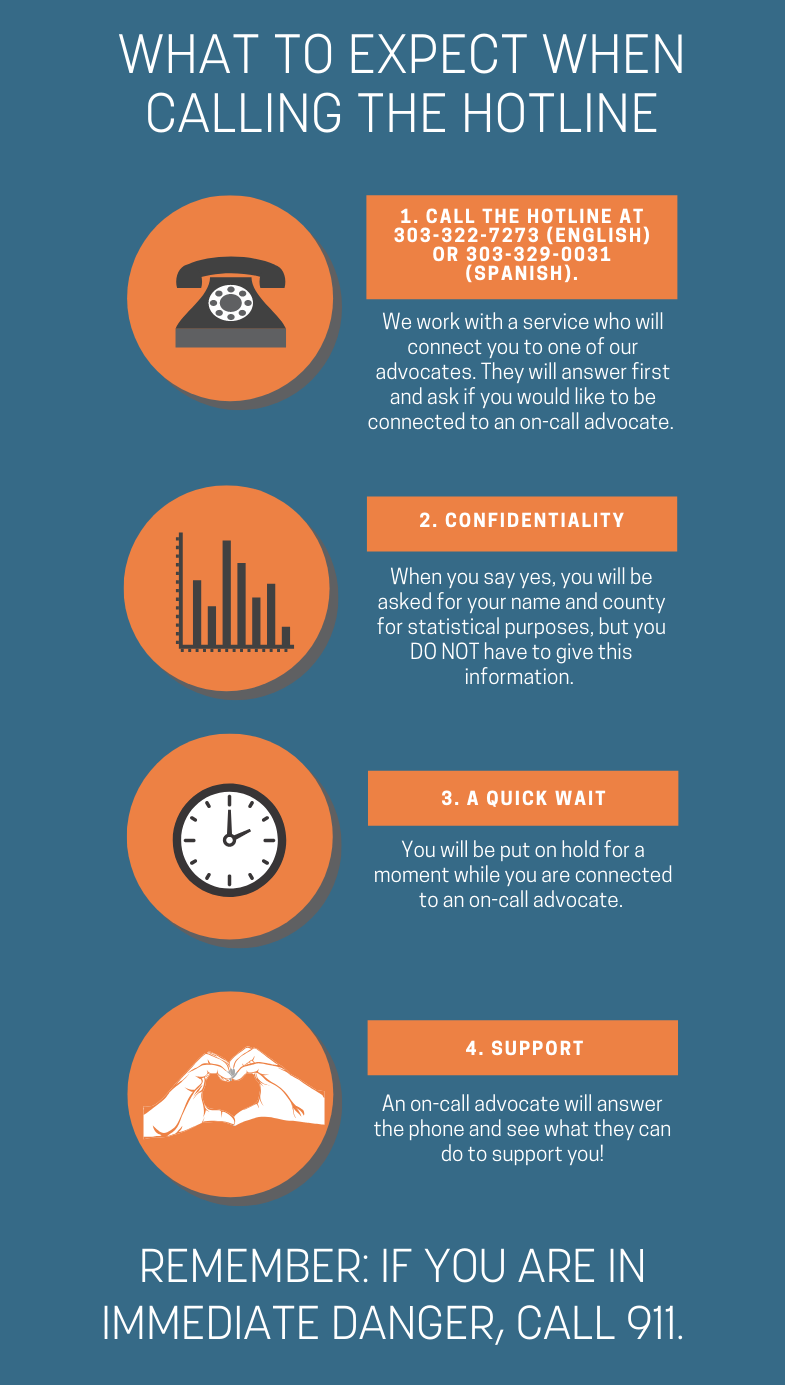Hotline FAQs

It can feel a little awkward and scary to make a call . . . especially when you don't know what to expect.
Read below for answers to some of your questions and to help you feel more comfortable calling the hotline. Your safety is the most important thing to us. If you are in immediate danger, please call 911 before calling the hotline.
-
Do people still call hotlines?
Yes. We get hundreds of calls a month.
-
Who can call the hotline?
- Survivors of sexual violence (sexual assault, sexual abuse, trafficking)
- Loved ones or members of a survivors' support systems
- Professionals seeking information or resources around sexual assault -
Who answers the hotline?
We have a team of trained advocates of all gender identities and walks of life who are available to take your calls 24/7.
-
What can the hotline do?
We want to support you in whatever way you need when you call.
- We are always there to provide a safe space to talk
- We will always believe you
- We can provide emotional and crisis support
- We can help you cope with anxiety through breathing exercises and grounding activities
- We can answer questions, provide information and options
- We can provide resources and referrals
- We can connect you with a hotline advocate who can accompany you to the hospital if you are in need of medical care
-
When can I call?
Anytime of day or night, seven days a week (24/7)--minutes, months or years after an assault.
-
What if the call drops or is disconnected?
Occasionally this does happen. We assure you we did not hang up on you. If you call the hotline right back, we will try to reconnect you with the advocate you were talking with to continue your conversation. If we are unable to do so, another advocate will be available to support you. Please note that because our hotline is anonymous, we cannot reconnect with you unless you call us back.
-
It's the middle of the night. I feel bad calling
That's what we're here for. We are here to support you 24 hours a day, 7 days a week.
-
Can I text the hotline?
Unfortunately, at this time we do not offer text message services.
-
How old do you need to be to call?
The Blue Bench serves clients ages 13 and up, but we are happy to speak to anyone on the phone and find age-appropriate resources for them.
-
Can men call the hotline?
Yes. Our hotline supports all gender identities.
-
Are your calls confidential?
Yes. All calls are anonymous and confidential. We don't have access to your phone number and you are not required to provide your name.
We are, however, mandated reporters. This means if there is reason to believe that a child, elder or adult with developmental disabilities is being abused, and you have given us enough information to identify (full name, address, school, phone number, etc.) the potential victim or abuser, we might have to report it to authorities. We do this for the protection of children and at-risk adults but want you to be in control of what information you choose to share.
-
Will I have to tell you about what happened?
We try to focus on what you're feeling at the current moment. If you'd like to talk about the past, we are here to listen, but we will never ask you to talk about something that you are not comfortable with. The content of the call is entirely up to you.
-
Can I call if I'm not sure what I need?
Yes. In fact, many people call our hotline with no specific questions--they just know they could use some support and someone to talk to.
-
I don't know if what happened to me was sexual assault--can I still call?
Yes. At The Blue Bench, we define sexual assault as “any unwanted sexual action, whether physical or emotional, that is perceived as a violation of one’s own wishes or desires”. Whether it was a friend, family member, significant other, teacher, coworker, neighbor, etc., your experience matters. If you feel uncomfortable about any type of behavior, from any person, we are here to support you.
-
I don't know if my situation is "bad enough" to call you
Everyone's experience is different and everyone deserves to be heard. If you currently feel like you need support, we are here to support you.
-
Can you help me with going to the hospital after an assault?
Our hotline advocates can talk through this with you. We can tell you about what to expect, what your options are, check in about how you're feeling and arrange for one of our hospital advocates to meet you at the hospital if you decide to go.
-
What if I can't stop crying or find it difficult to say anything?
You are not alone. Any emotions you have are real and normal. We are happy to help you with grounding exercises to help you feel calmer, or simply to offer you support, however you need it.
-
I am a loved one of a survivor. Is it selfish for me to call the hotline?
Absolutely not. We appreciate how much you care and recognize that trauma affects everyone involved. In order to support your loved one, it's important you support yourself as well.
Ok. I'm going to call. How does that work?

